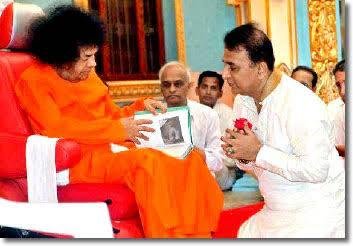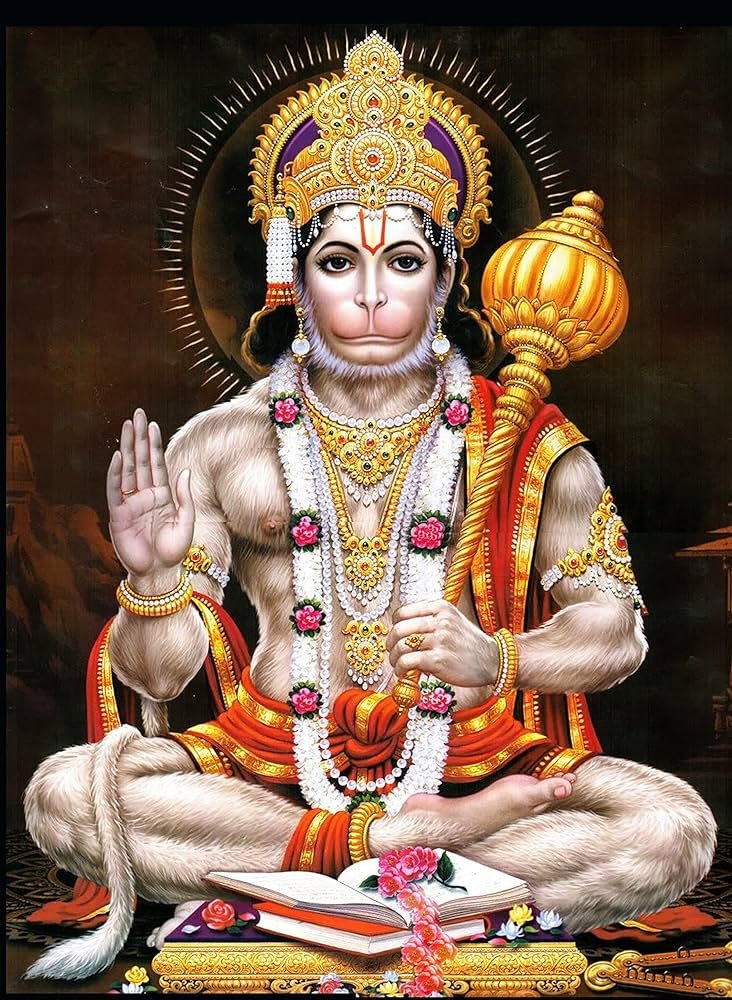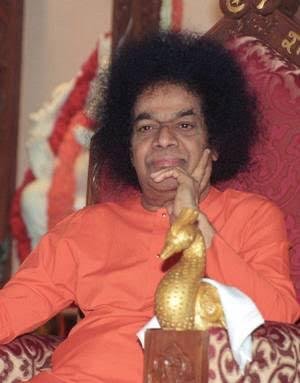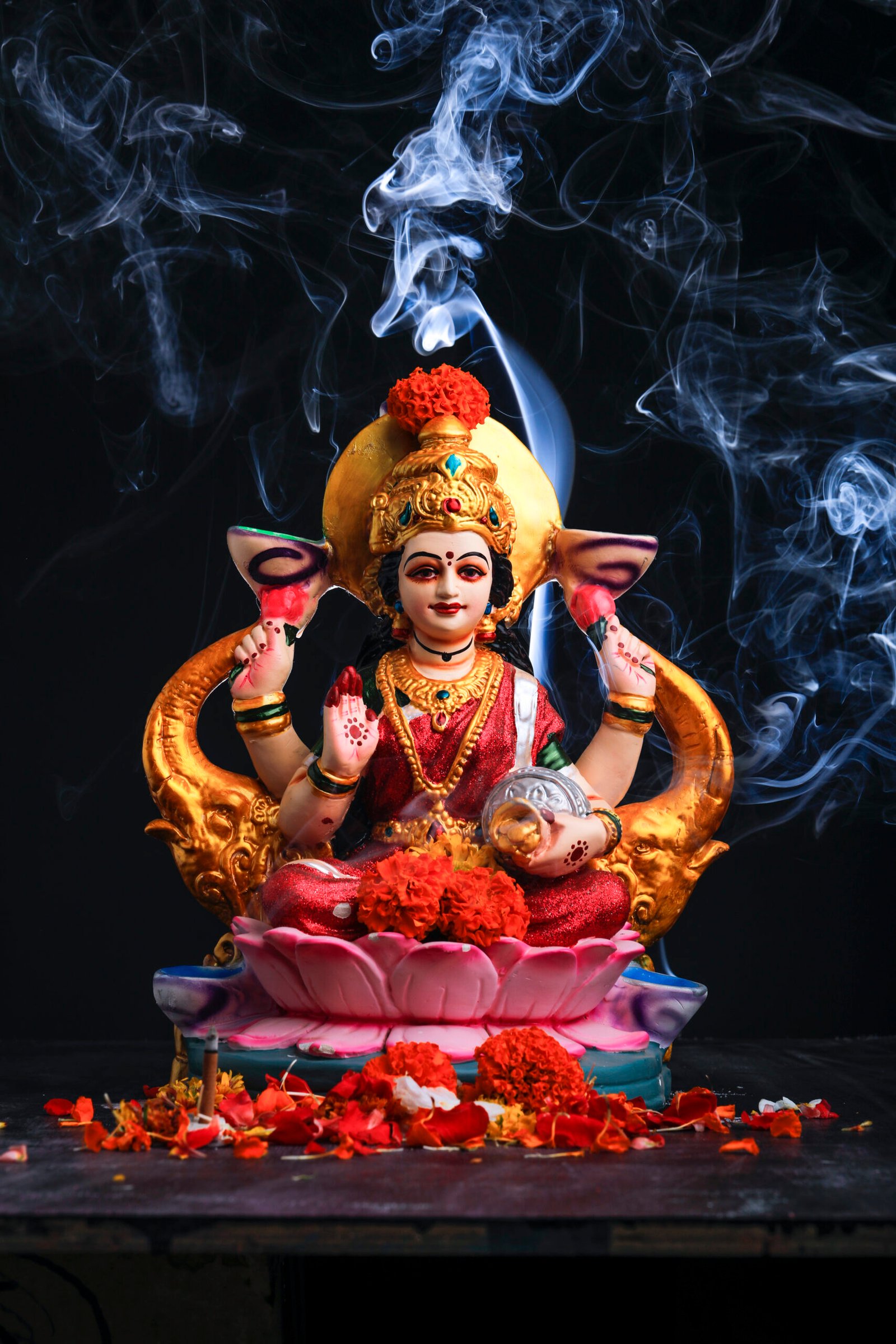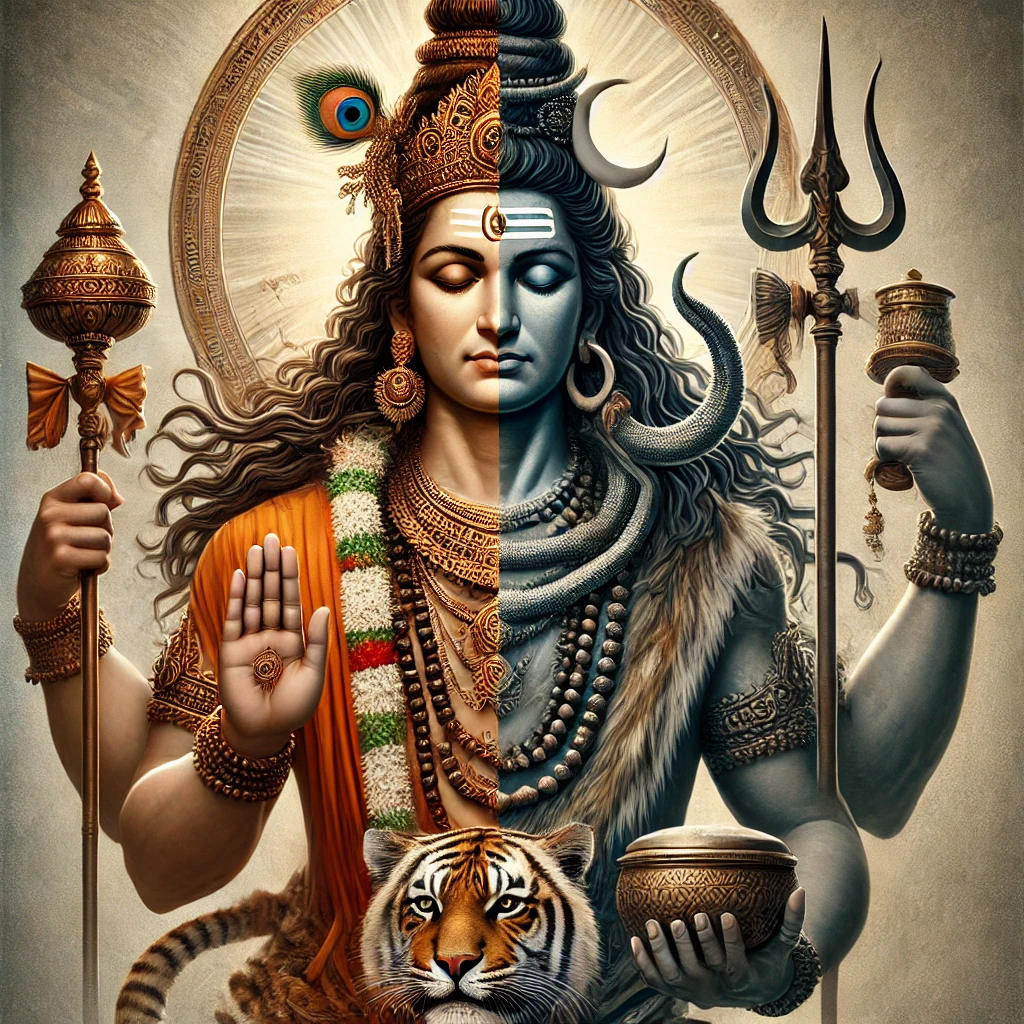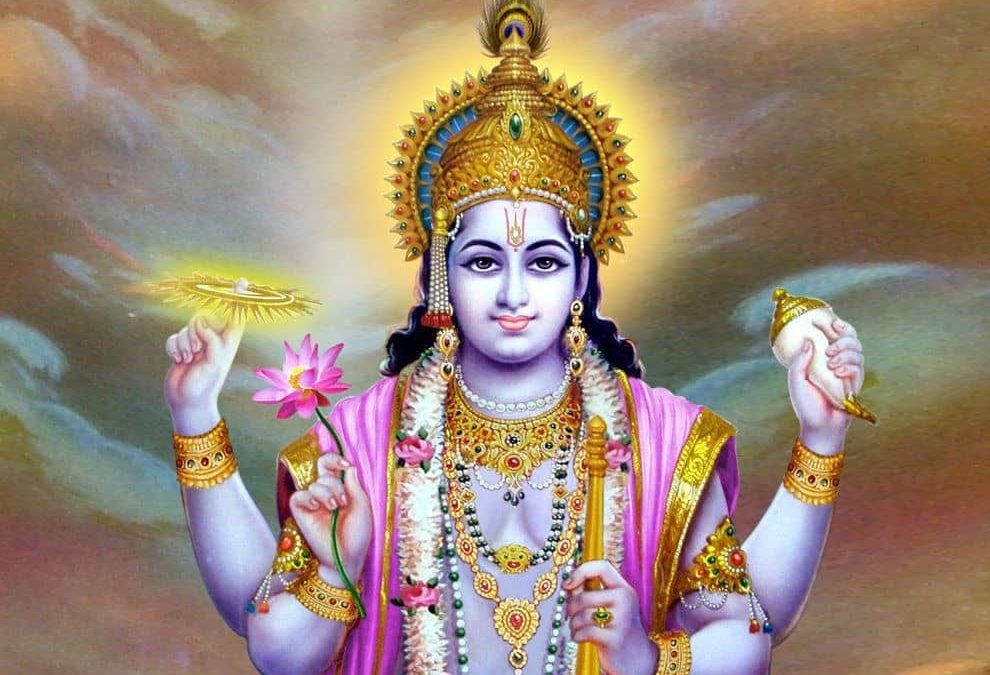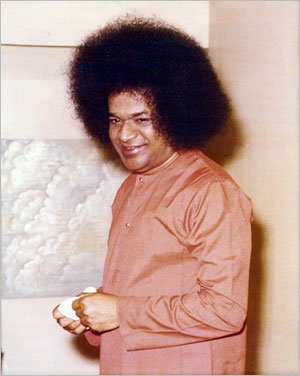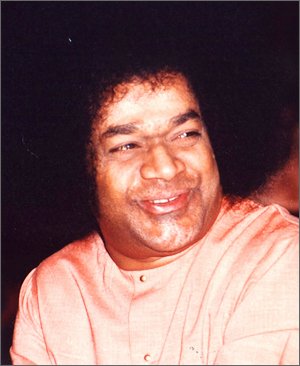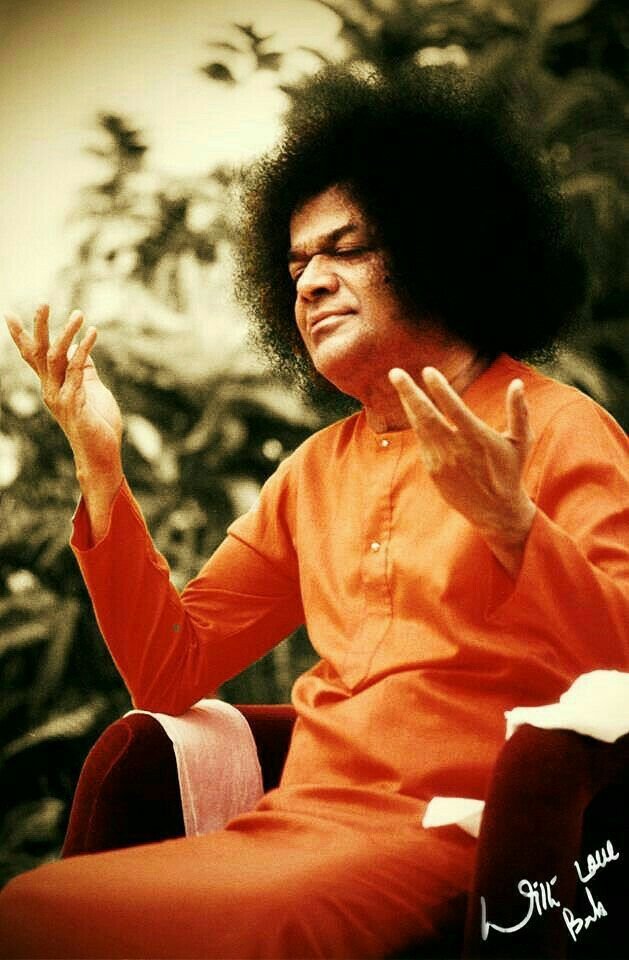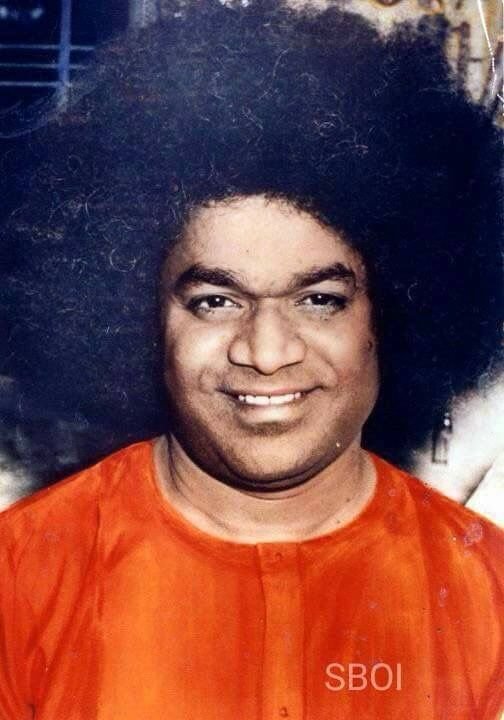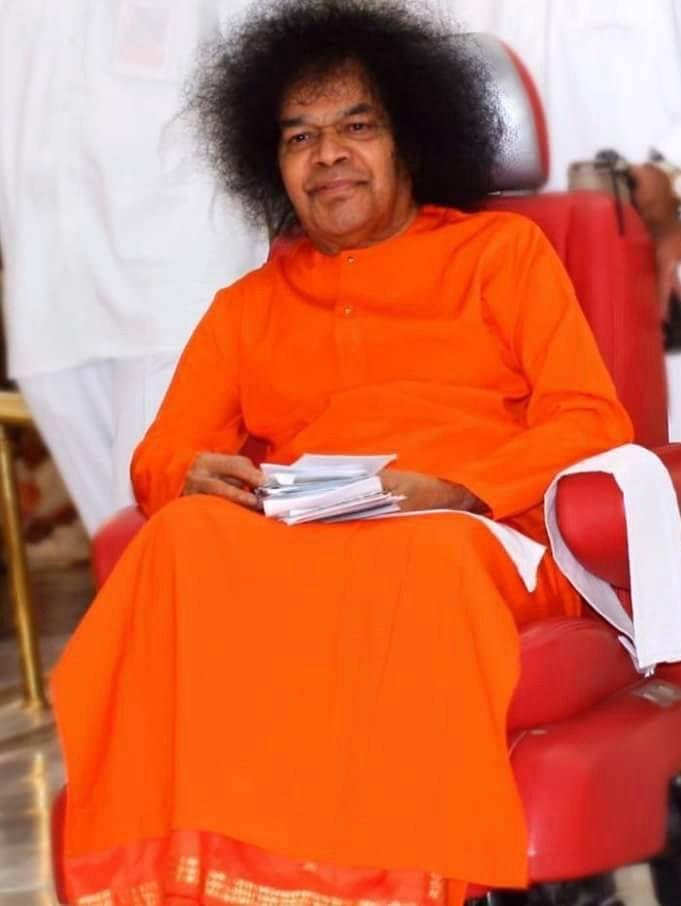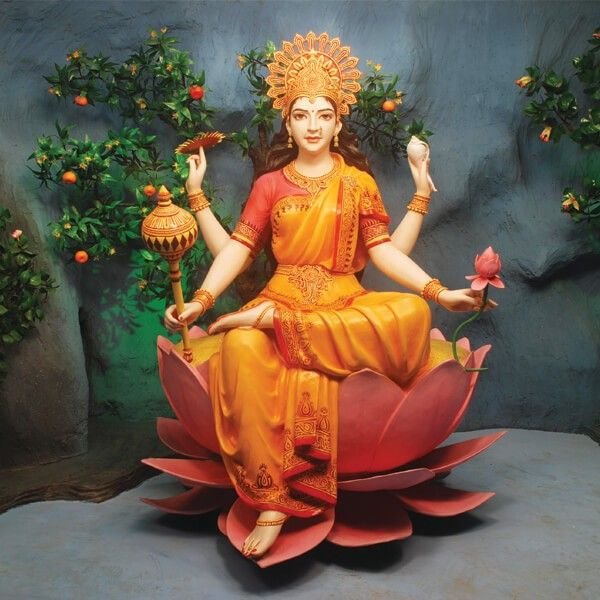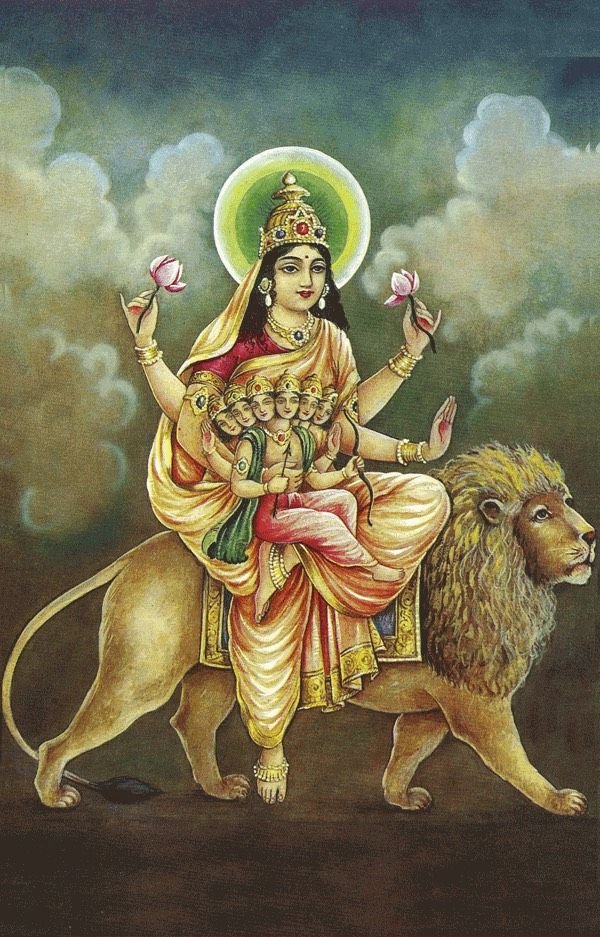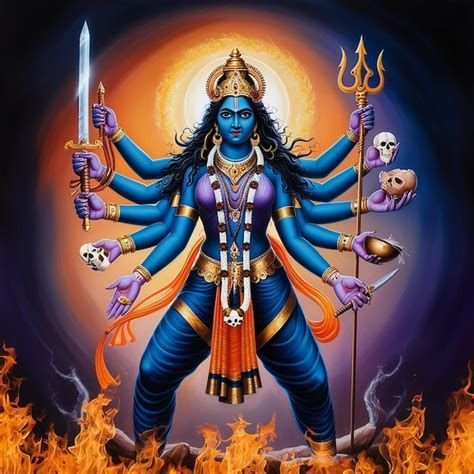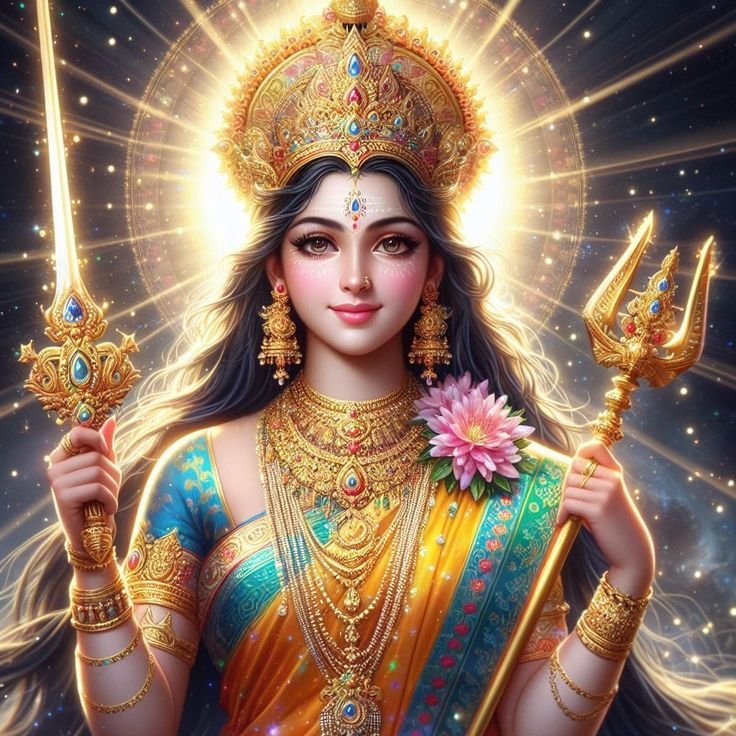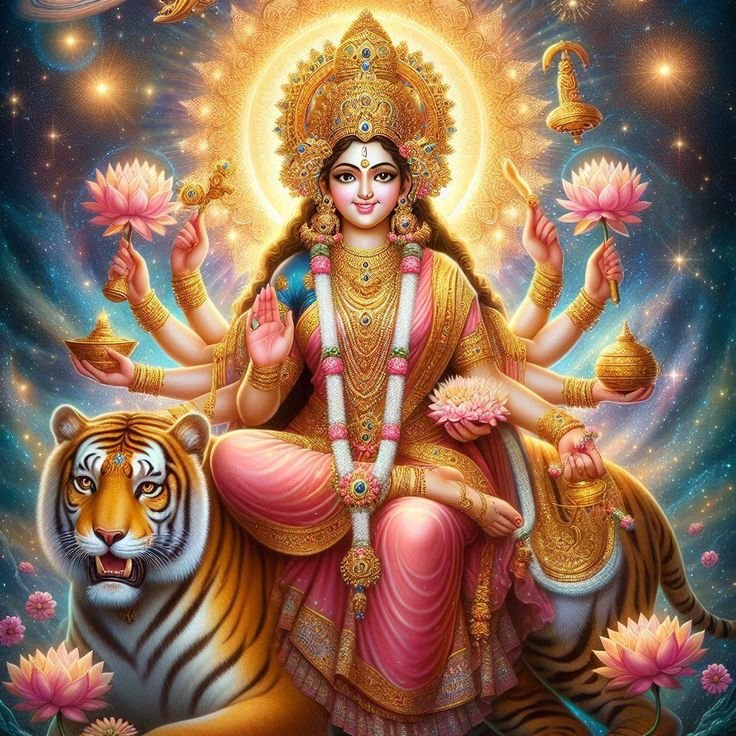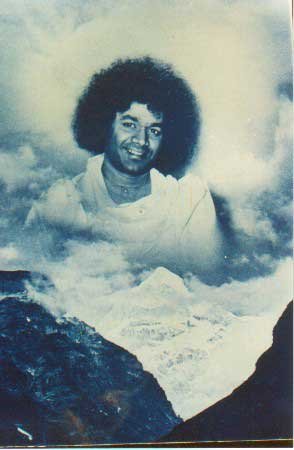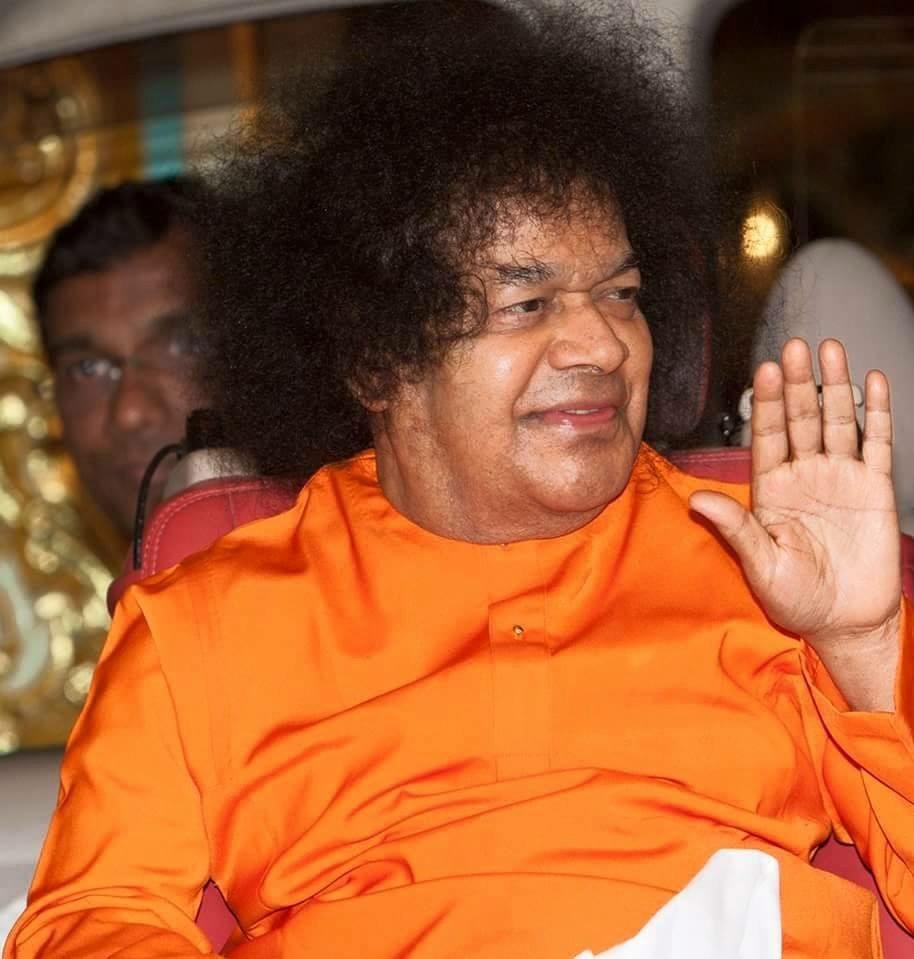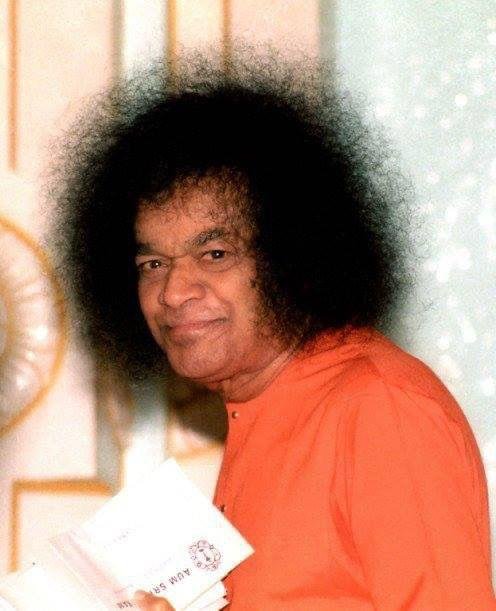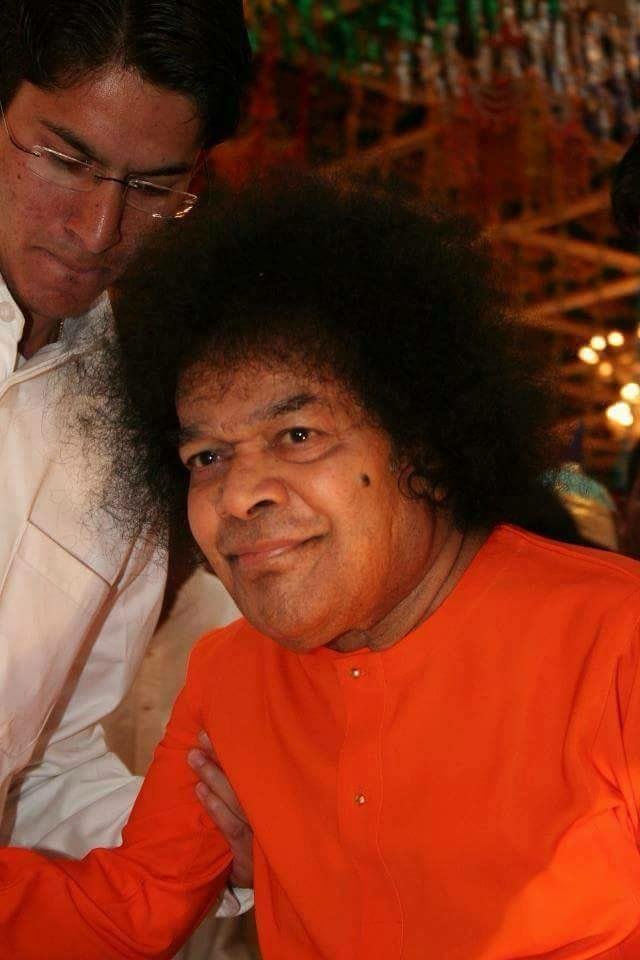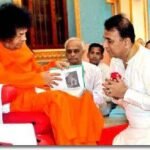CONVERSATIONS WITH SAI Satyopanishad
Satyopanishad – Part Five
Direct Directions from the Divine
CHAPTER 2 – TRENDS IN SOCIETY
Anil Kumar (AK): Swami! When we say, ‘men and women are equal’, why then do we find differences and discrimination between the two sexes?
Bhagavan: Physically, men and women are different. But spiritually, i.e., from the atmic point of view, both are equal. In fact, God is the only male while all others are females. The deham, body, is also called puram, dwelling place. It is the principle of atma that works from top to bottom. You know, colleges for women celebrate anniversary functions during which they present cultural items like a play.
Similarly, all but God are women in this world. A similar thing happened in the life of Mira, the great devotee of Lord Krishna. She was stopped at the main entrance of a Krishna temple at Brindavan, and was told that women were not permitted to enter a temple of God . Then Mira replied, “Oh! Is that so! Where are men here? I find only women. God is the only male person. “
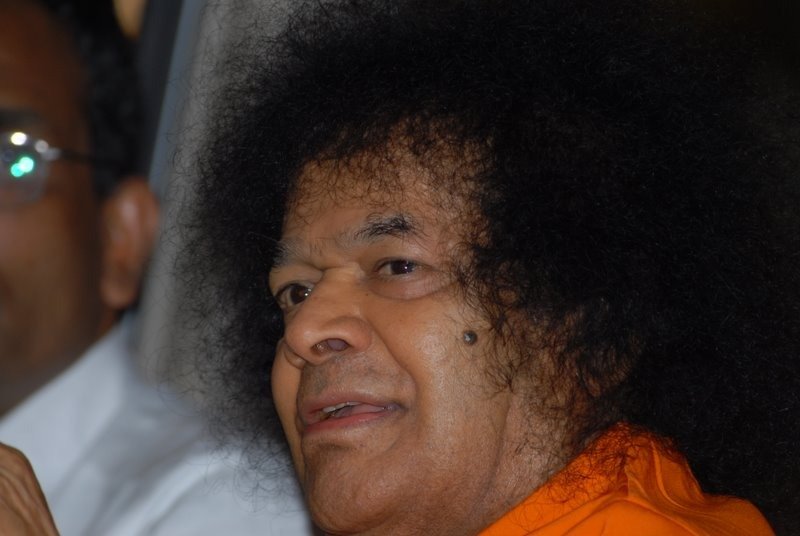
AK: Swami! We hear many funny statements in present day society. People speak about the Women’s Liberation Movement. Some say that women have not been given their due place since times immemorial. They complain that there has always been discrimination on grounds of gender, and women have never been given a fair deal. Women now fight for equal rights with men. We pray to you to describe to us the role of women in our society?
Bhagavan: This is not true, spiritually speaking. There is a physical difference, but Atma or the spirit is one. However, each one has to discharge the duties expected of him or her. In a social order, man and woman are like the two hands, the two eyes, and the two feet. One is the positive, while the other is the negative for the current to flow and operate.

Lord Siva is called ardhanaris’vara, androgynous God (half of His body being that of a woman) to explain this unity. Man and woman are like matter and energy. A woman is described as adis’akti, paras’akti Supreme Power, Infinite Power.
You also notice in the history of Bharat ( India ) the place given to women. Many of them are known today for their sacrifice, wisdom, devotion, and many of them could give better and sane advice to their husbands. Characters like Savitri, Mandodari, Sita, Anasuya, Tara, Damayanti, Madalasa, and Draupadi are very well known.
In ancient times, Gargi and Maitreyi were known for their outstanding scholarship and spiritual excellence. In recent times, have you not heard of the role played by the mother of Emperor Sivaji and of Gandhi, the Father of the Nation, in moulding their character and personality?
In our daily prayers we say matr devo bhava, ‘Mother is God’. Don’t you see the names of women come first and those of men next, in compounds like SitaRama, GauriSankar, LakshmiNarayanaand and so on? In the past, there never was an instance of women being humiliated, neglected or treated with disrespect. Don’t you hear words like ‘motherland’, ‘mother tongue’ that speak highly of women?
The Bhagavad Gita refers to seven types of power enjoyed by women as a matter of right. She has quite a few titles that underscore her contribution to the family and her special role. A housewife is called illalu, the one who takes care of the house or illu. She is described as sahadharma carini, the one who guides her husband along the path of Dharma or righteousness. She is praised as grhalaksmi, the very embodiment of the wealth, peace and prosperity of the family. She is called ardhangi, representing a half of man, the better half.
Woman stands for patience, sacrifice, forbearance, respect, humility and obedience, the qualities, which are usually missing among men. A woman is prepared to die for her child or husband. She slogs and struggles for the progress and the well being of the family. She is the backbone of the country. She is the light and the delight of the family.
AK: Swami! A change is very much needed in every field of our activity. Almost all walks of public life are nowadays polluted, disgusting and disappointing. How is change to be brought about?
Bhagavan: Truly speaking, villagers who are unlettered, innocent and rustic are living in greater peace and cooperation, in more intimate relationships, and mutual love than the so called urban, sophisticated, educated, and seemingly cultured people. The latter are full of ego and jealousy.
To bring about a change, they need to work for it. They must put in enough sincere effort to overcome qualities like egoism, pride, jealousy, and hatred. Butter is, no doubt, very soft; but in order to make ghee out of it, you must heat it. Similarly, for any change, you have to work for it.
You should, first of all, listen to all good things from good people. This listening, s’ravana is the first step. It is not enough if you simply listen. You should remember, recall, recollect, and recapitulate the good things you have listened to.
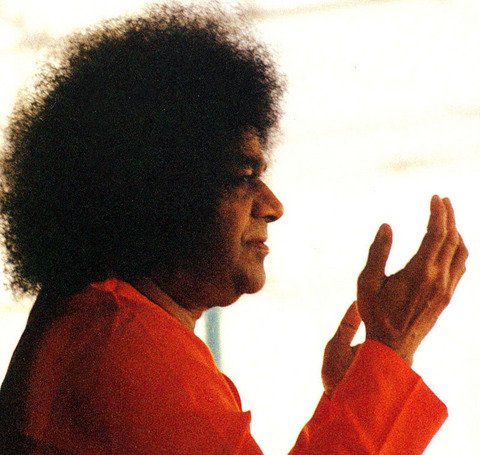
It is then that you eat it. Further, the food that you eat must be digested, assimilated, and the nourishment supplied to different parts of your body. Is it not so? Similarly, s’rvana, listening is like cooking; manana, remembering is the same as food kept on the table; whereas nidhidhyasa, practicing what is heard is like eating and digesting.
AK: Swami! We are always in a hurry. We have to rush to so many places to catch up and to keep pace with time and work. In this type of fast life, is it possible to be spiritual? Can we hurry here in the spiritual field too?

Bhagavan: Today, many of the diseases are due to the three factors very common among you: hurry, worry, and curry. Haste makes waste, waste makes worry. So, don’t be in a hurry. Patience is very important and essential. In my previous body as Shirdi, I laid emphasis on sraddha and saburi, sincerity and patience.
It is very common to find people running to catch a train or a bus to go to office, and so on. You wait for any length of time standing in long queues in front of cinema theatres. But here, you begin to look at your wrist watches wondering why Swami has not yet come out for darshan! So, you must be patient enough to enjoy real bliss. For anything to happen, there is a proper time, preordained, predetermined, and designed by God. You know Arjuna had to wait till his 74th year in order to listen to the Bhagavad Gita, the Song Celestial, from Krishna, although both of them were moving together for years very intimately. Similarly, you too should wait.
You should not feel, “What is this! Why is Swami not talking to me?” At the right time, I will do the appropriate thing for you. See, how a fruit falls down on the ground soon after it is ripe detaching itself from the tree! You will have to wait till the time is ripe for you. You can’t and shouldn’t be in a hurry in the spiritual field.
AK: Swami! The growing trend today is to earn more and more money. Ego and pride are growing beyond control. Would you kindly give us the solution for this trend?
With money you can have delicious food in a five star hotel – but how about your appetite? You can buy a beautiful bed – but can you buy sleep? You can have the latest, costliest medicines – but can you with your money extend the life of a dying man?
AK: Swami! In an organisation where we have to interact with people, most often we come across people criticizing and blaming each other. This is very frustrating, and divides people into groups. Sincere persons become frustrated because of uncharitable criticism. It looks like character assassination and mud slinging. How are we to take this evil prevalent everywhere?
Bhagavan: It is a sin to criticize others. It is a sign of weakness and inferiority complex. You shouldn’t criticize or hate anyone. In fact, no one has any authority to criticize others. To tackle this, first of all, one should put a question to oneself: “Who is being criticized?” Then, you don’t feel upset any longer. Why? If the criticism applies to your body, you don’t need to feel bad because the body is temporary and ephemeral. You should be indifferent to your own body, which lands you in many difficulties and problems.
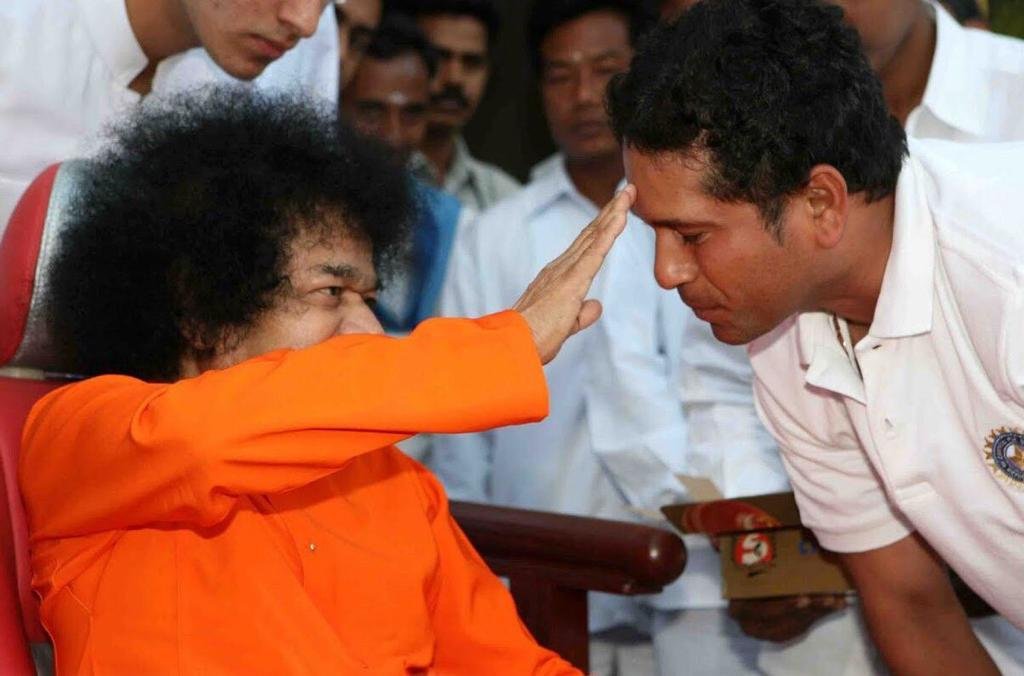
The other man is doing service to you by criticizing your body. You should be thankful to him for doing so on your behalf. Is it then, the spirit or atma that is criticized? This is not possible because the same soul or atma is present in the critic also. Atma is Self, the same in all. Then, who is the critic and who is criticized? It all amounts to the criticism of one’s own self. Ego and jealousy are the root causes that provoke a person to criticize others.
Don’t acknowledge and receive it. Refuse it, so that the same registered letter of criticism will go back to the sender, the critic himself. If anyone speaks loudly and belligerently against you in public, it is all lost in the air or in your vicinity. If anybody accuses you secretly, it goes to the accuser himself.
If you want to know any good person existing in this world, it is yourself only. Dharmaja was asked to go round and bring a bad person. He returned saying that there was none who was bad other than himself. This is the difference in the attitude of two persons with different views of life. As is your vision, so appears the creation. As is the colour of the glasses you wear, so is the colour of the world you see. If you are aware of this truth, you will never criticize anybody.
Sarva jiva namaskarah kes’avam prati gacchati, ‘whomsoever you respect and revere, it amounts to reverence unto God’. Since God is in everyone, if you respect anyone, it means, you respect God. Similarly, sarva jiva tiraskarah kes’avam prati gacchati, ‘whomsoever you hate, it amounts to hatred of the Divine Himself’. If you deeply look into the eyes of the man standing in front of you, you see your own reflection. Therefore, he is not a separate person but your own reflection.
Satyopanishad – part Six
Direct Directions from the Divine
CHAPTER 2 – TRENDS IN SOCIETY
Anil Kumar: Swami! As we think of the way in which our life is going, we find it confusing and disheartening. We also doubt if it is going in the right direction or not. You are our only refuge. Kindly guide us.
Bhagavan: You know mrdangam, the South Indian musical instrument, which like a drum, has to be beaten on both the sides as you play. Your life is like a rat caught in that mrdangam. If the mrdangam is beaten on one side, the rat runs to the other side, and vice versa, as there is no way out for it. Similarly, having been fed up with this world, you think of God. When God tests you, you again drift towards the world. Your movement between the world and God is like that of the rat. This is not the proper way.
A small example: Two students competed with each other in a tournament of eating bananas. One student wanted to eat the outer skin of every fruit first so that he could finish eating the soft pulp part next. The other student planned to eat the soft part first and the skin next. Accordingly, they started eating.
The first student having eaten the outer skin of every fruit first had his belly full of that stuff and he could not eat any sweet pulp. So he was defeated, and suffered from stomach ache and indigestion. The second student ate a belly full of the pulp of every fruit, and hence couldn’t eat the skin of the fruits. So, he too lost in the competition. All the same, he remained healthy.
Similar is the case with those people who are after worldly desires and sensual pleasures. They will have to end their lives in misery finding no cure for bhavaroga, the ailment of worldly attachment. This is equal to the condition of the first student who ate only the outer skin of the banana first in the tournament. But those who think of God are like the second student who ate the soft pulp. They grow stronger in divine life.
Life should start from the point of dasoham, ‘I am your servant’. Fill its middle with the relentless enquiry, koham, “Who am I?” End it with full awareness of the identity of the individual self with God ‘soham’, ‘I am God’. This is the correct way of life.
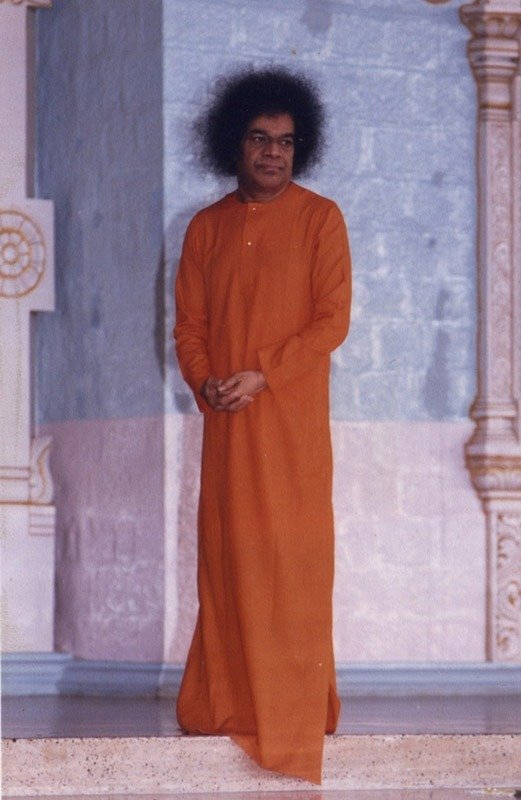
n the same manner, there is a board attached to this world, anityam asukham lokam, meaning “This world is temporary and full of misery.” How then do you expect peace and happiness in this world? That is why in the Bhagavad Gita, Lord Krishna says, mam bhajasva, meaning, ‘Think of Me, or worship Me, or be immersed in Me, or surrender to Me’. You should lead your life in full knowledge of these facts
Anil Kumar: Swami! How should we conduct ourselves socially? What are social norms?
Bhagavan: You should forget two things: the help you have given to others and the harm others have done to you. Moreover, you should remember two things: the help that others have given to you and the harm you have done to others. Then there will be no ego, pride, jealousy, envy, hatred, and other evil tendencies in you.
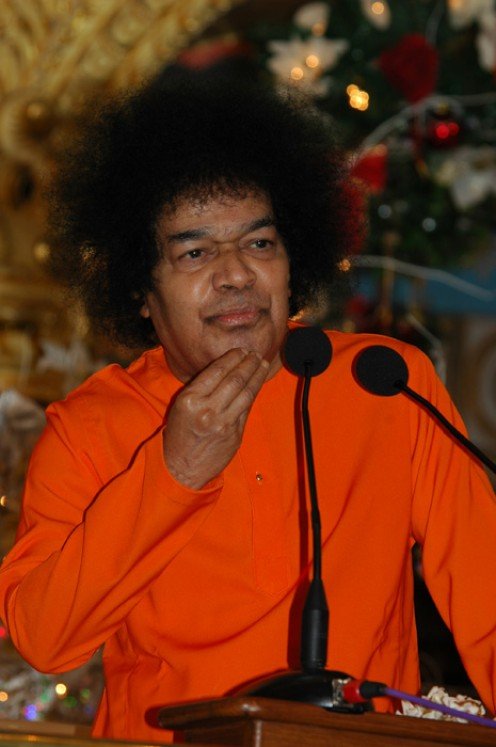
You should also note another important thing. However small a fault or mistake there is in you, take it as something big. At the same time, when you notice a big mistake in others, you should consider it as a very small one. Take your own goodness as tiny and that of others as mighty. This attitude helps you to correct yourself, improve yourself, and enables you to forgive and forget the lapses of others.
But, what happens today is quite the opposite. Everyone magnifies his own goodness and minimises that of others, considers his own Himalayan blunders as small as an anthill, while he gives Himalayan magnitude even to the smallest mistakes of others. This is the cause of all conflicts and infighting.
There are still two more extreme categories of people. Some of them portray their lapses as merits, project their mistakes as right things, and try to focus on their virtues, which are actually missing in them. Then, there is the last category of people who are even worse than demons. These are the people who attribute faults, mistakes, and defects to others, which are all false, and totally ignore their merits. Correct your own mistakes first. Judge others by their merits and not by their faults. Seek out your own faults and others’ merits.
Anil Kumar: Swami! Many people feel that they are too busy to have rest. How, then, is one to take rest?
Bhagavan: Change of work is rest. You should never be idle. You should not be lazy. Laziness is rust and dust that ultimately bursts. But work is rest and best. If you are tired of a particular piece of work, change to another. Change of work is rest.
Anil Kumar: Swami! We worry a lot. Sometimes we fall sick also due to worry. What is worry? Please tell us how not to worry?
Bhagavan: In my opinion, there is nothing like worry. If you enquire in depth, you will know that there is no worry at all in this world. It is merely psychological. Worry is mentally created fear. That is all! Nothing more! It is all your imagination.
At times you feel guilty. So, you worry remembering your past, which is beyond recovery. By no effort can you recover it. Past is past. Then, why worry about the past? Is there any sense in it? You may worry about the future. This is also useless in my opinion. Why? Because the future is uncertain, anything may happen. Who knows? The future is unknown. Why, then, should you worry about the future? What do you gain by that?
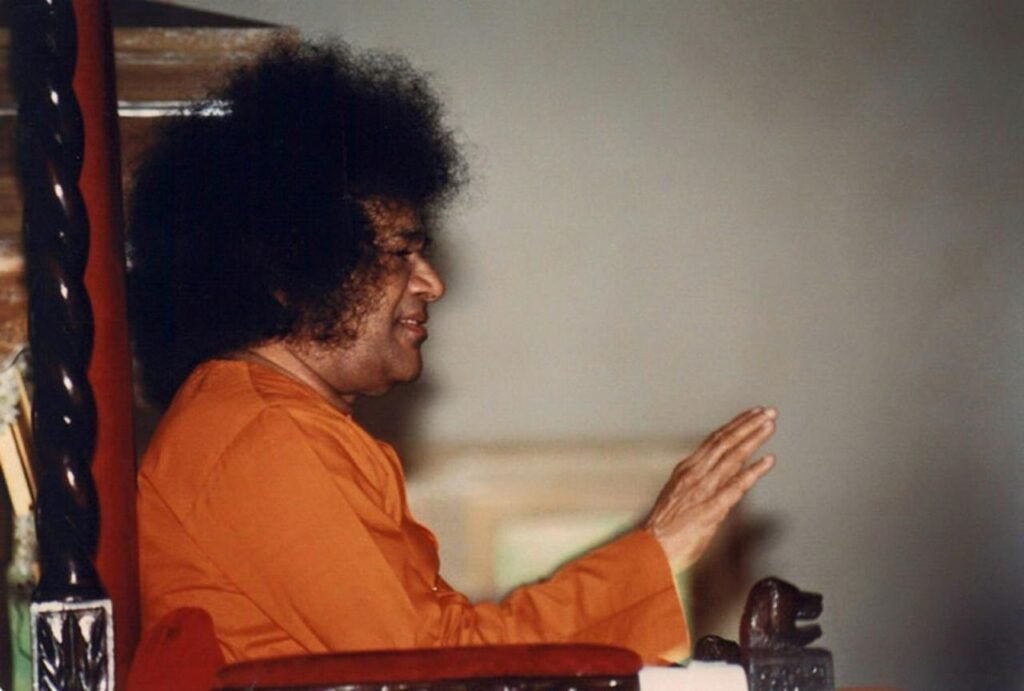
Anil Kumar: Swami! Nowadays many educated people waste their time, money and energy in towns and cities. Bhagavan, we are eager to know your views on this subject.
Bhagavan: “Time is God”. In your prayers you say, kalaya namah, kalakalaya namah, kalatitaya namah, and so on. Time is divine. You should not waste time. It is a sin to waste or misuse time. Everybody must follow time. God is the master of time. Time waste is life waste. Haste makes waste, waste makes worry, so do not be in a hurry. We should perform good actions and thus spend our time in a sacred way. Youth and a river will never flow backwards. When you pass the stage of youth, it will not come back. The river water flowing forward will never retreat. Therefore, you should consider time a very precious commodity.
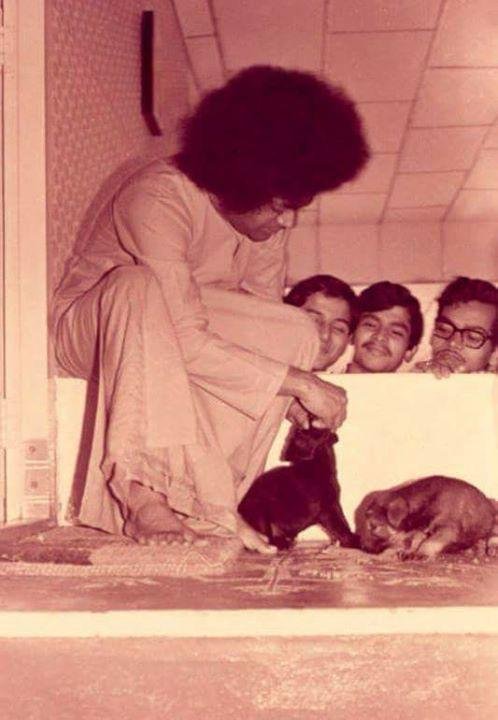
You have also pointed out that money is wasted by many educated people. This is very bad. Waste of money is evil. You should not misuse money. Remember always, much money makes many more wrong things. Much money leads you into bad habits. You should spend money on welfare programmes.
You should express gratitude to society, which has been responsible for your present status, by spending money on service activities. You should sacrifice for the poor and needy. Na karmana na prajaya dhanena, tyagenaike amrtatva manasuh. ‘You attain moksha or liberation only by sacrifice. No action, no offspring, no possession or property ever equals sacrifice.’
In the human body, blood should always circulate. Similarly, money should circulate in society. It should not stagnate in the hands of a few persons. If blood does not circulate, there develops on the body a boil or a tumour. If you run short of money, it is difficult to manage things. At the same time, too much money spoils you. It should be like your shoes that fit your feet exactly.
If the shoes are loose, you cannot walk; if they are tight, then also you find it tough to walk freely. Your shoes should always be of the exact size of your feet. So also, money should neither be too little nor too much for you. Bear in mind what I tell repeatedly and caution you. Money comes and goes, but morality comes and grows.
brahmarpanam brahma havih brahmagnau brahman a hutam, brahmaiva tena gantavyam, brahmakarma samadhina. aham vaisvanaro bhutva praninam dehamas’ritah, pranapana samayuktah pacamyannam caturvidham.
“Oh God! You are in the form of Vaisvanara. You verily digest and assimilate the food that I eat. I offer the food that I eat. I offer the food to You. You alone supply its essence to all parts of my body”. This is the meaning of the prayer that you say before you take your food. Therefore, you should not waste food. It is a sin to waste it.
I want you to place a ceiling on your desires. This is possible only if you decide and pledge not to waste time, money, food and energy. All the five elements of nature – earth, water, air, fire, and space are divine. You should be highly reverential and grateful to these five. Always consider them divine.
Anil Kumar: Swami! When we are not happy with the type of education and the money we receive, is it right to feel that they are useless? Should we give up these two? What is the way out?
In fact, in education there is nothing wrong, for prajnanam brahma, ‘Knowledge is God’. So education can’t be defective. When your mind is pure, your education confers wisdom and spiritual awakening on you. But a polluted mind makes use of education for its selfish gains. Hence, education being the constant, its utility depends on the nature of the mind. This is true of money as well.
A sacred mind prompts you to sacrifice: But a polluted mind makes you waste money by taking to vices. It makes you a slave to all sorts of bad habits. Ultimately you lose your good name. Here also money being constant, its utility depends on the mind. Therefore, it is necessary to keep your mind pure, sacred, Godward, and full of selfless divine love. This process is sadhana, spiritual endeavour.
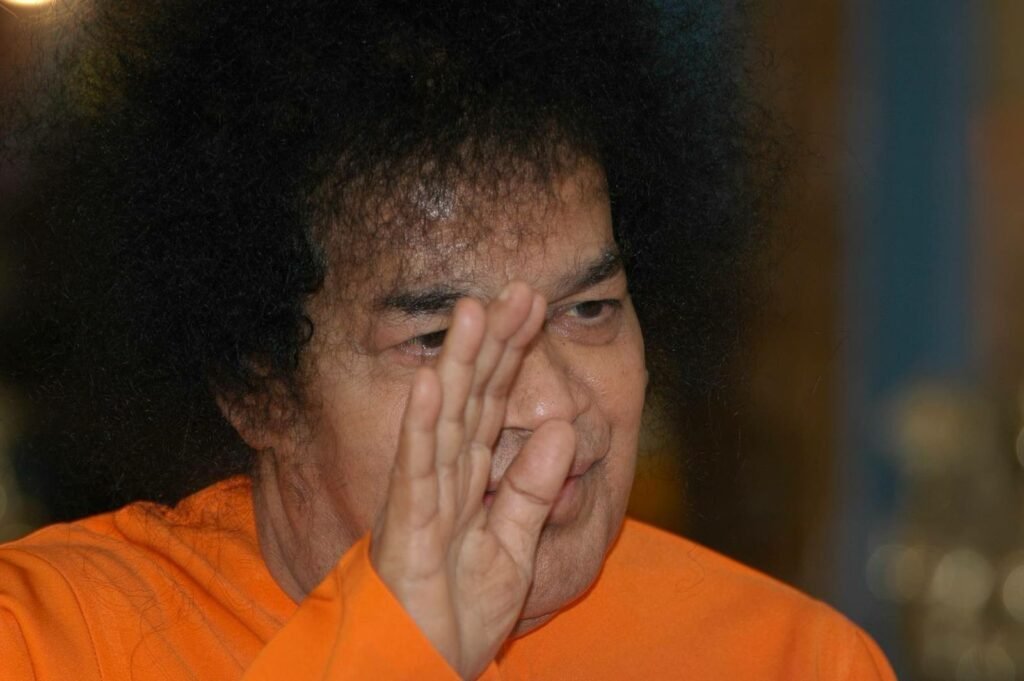
Anil Kumar: Swami! Our country, Bharat, is famous politically for its secular constitution. But, political parties interpret “secularism” in a variety of ways. Some offer distorted comments. I pray for your clarification.
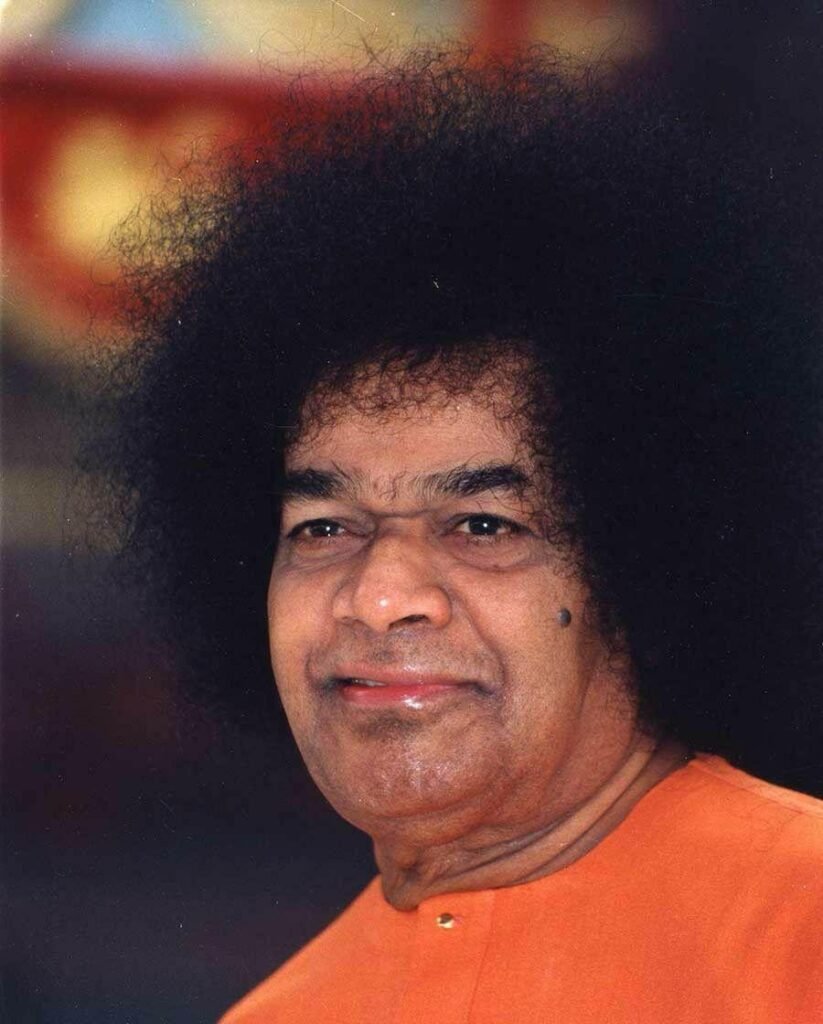
Bhagavan: “Secularism” does not mean atheism. A secular nation is not the land of Hiranayakasipu (the demon who desisted all from thinking of God), but one where each citizen follows his dharma, propagates and professes it freely without criticising other people’s faiths and dharmas under any circumstances. Sanatana dharma does refer to the “secular”. Sri Krishna remarks: Svadharme nidhanam s’reyah paradharmo bhayavahah.
In other words, you should follow svadharma and not paradharma. But, there is a subtle point here. Svadharma does not mean the dharmas relating to one’s caste, stage in life, or profession, as you imagine. Svadharma is Atmadharma, the dharma based on Atma consciousness, and paradharma is Anatmadharma based on non-atma (devoid of the spirit) that is, which relates to body consciousness.
Anil Kumar: Swami! Today a number of international organisations are striving for peace. It looks as though the guiding principles of these organisations are not focused properly. How then is peace to be achieved?
Anil Kumar: Swami! In this modern age, many of us consider our age old religious rituals like yajnas and yagas meaningless, ridiculous and outdated. Why has this happened?
Bhagavan: Ignorance is the main cause, the utter ignorance of thoughtless speeches. A simple example: A District Collector went to a village on official work. There, in a field, he saw a farmer who was just throwing paddy grains on his plot of land. The official felt that this was the reason why India was so poor.
“What a funny man is this rustic fellow throwing away paddy grains at a time when people are starving” he thought. He finally decided to ask the farmer why he was doing that. The farmer responded, “Sir, I am not wasting these paddy grains. Today it looks as though one bag of paddy is just thrown to the winds, but later you will get fifty bags of paddy out of this one bag”. Then the Collector understood that he was mistaken.
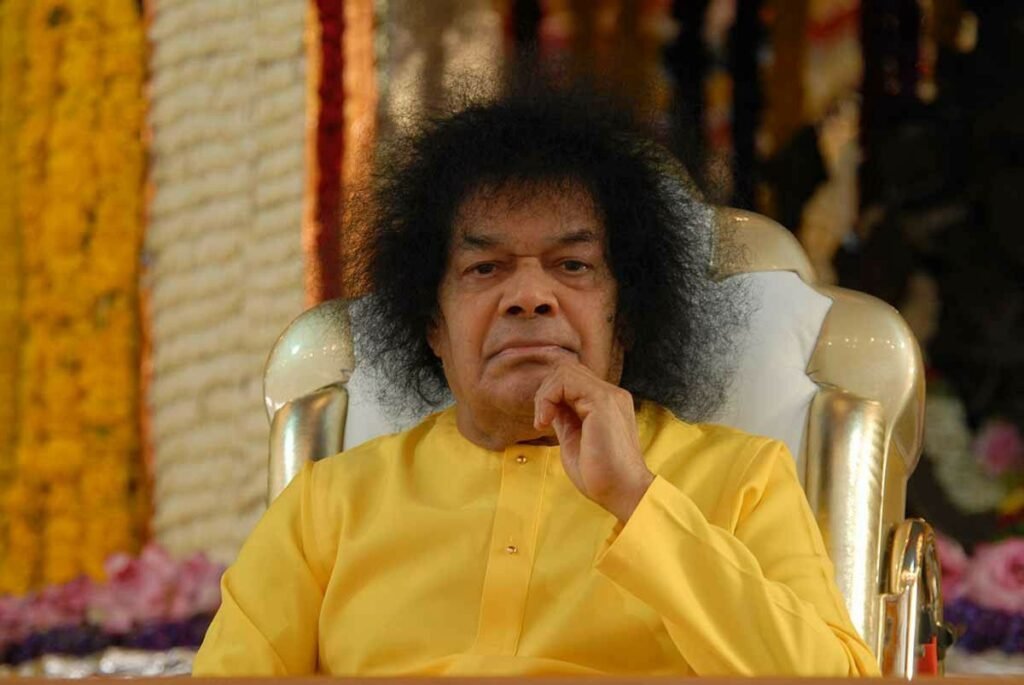
Anil Kumar: Swami! Kindly instruct us in the main principles to make progress in spheres such as Science, Politics, Ethics, Religion, and Spirituality.
Anil Kumar: Swami! Kindly instruct us in the main principles to make progress in spheres such as Science, Politics, Ethics, Religion, and Spirituality.
Bhagavan: If you follow three main principles, all round progress is ensured. You will undoubtedly progress in all fields of activity, individual and collective.
The first principle is daivapriti, ‘Love of God’. The second is papabhati, ‘Fear of Sin’. The third is sanghaniti, ‘Morality in Society’. Unless you love God immensely, you cannot fear sin. With fear of sin, morality gets automatically established in society. Thus, the three principles are interdependent and interrelated.
I often tell my students, “Before you do anything, just put this question to yourself: Will Swami approve this action? Is this going to please Swami?” Your intense love for Swami will not allow you to do anything wrong. Evidently, love of God leads to fear of sin. We find turbulent and raging waves in the sea dashing against boulders that stand steady and unshaken. In the same way your faith should be steady, strong, unshakeable, and unwavering, irrespective of losses, failures, defeats, troubles, difficulties, and problems. For instance, if anyone says to you, “There is no God,” what reply should you give? You should reply in this way, “All right, you don’t have your God, but what right do you have to deny my God?”
Never forget God, remember pancaksari, the five lettered mantra devudunnadu (1) de, (2) vu, (3 ) du, (4) nna, (5) du, (Telugu sentence with five letters meaning “God exists”). In order to see that you don’t doubt this, repeat astaksari, the eight lettered Sanskrit mantra, sams’ayatma vinas yati, (1) sam, (2) s’a, 3) ya, (4) tma, (5) vi, 6) na, 7) s’ya, 8) ti which means ‘doubt is death’. Never doubt God. In a sentence like this, “God is nowhere” reflects your pitiable plight of being denied His presence. Now, take out ‘w’ from the beginning of the fourth word ‘where’, and join it at the end of the third word ‘no’. Then the sentence reads, ‘God is now here’.
Man, most unfortunately, commits sins but is not prepared to face their consequences. He expects punyam, ‘merit’, the result of good actions, but does not refrain from doing papam, ‘sin’. Nor would he do any meritorious deeds to get good results. Is there any logic or rationale for him to get good results? How foolish are such expectations? How do you expect one kind of result from an altogether different and opposite kind of action? Always bear in mind the whole thing comes back to you in the form of reaction, reflection, and resound. You cannot escape them. When you fully realise this, you will not commit sins or involve yourself in harmful deeds. So you should ‘Love God’ and ‘Fear Sin’. With these two, there will be ‘Morality in Society’.


